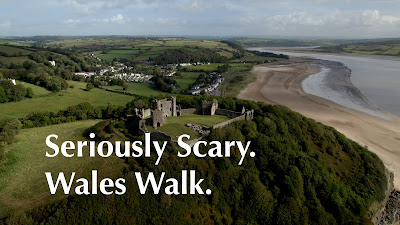Two fishermen wearing lifejackets rescued after their vessel capsizes off Norfolk coast
 |
| S92 Coastguard search and rescue helicopter Photo credit: Bob Sharples Photography |
A search and rescue operation was launched just after 2.20pm today (5 November) after HM Coastguard received a mobile phone call from the two men reporting that their 7m fishing vessel had capsized after losing electrical power.
The fishermen had called the Coastguard whilst clinging to the side of the hull of their vessel, just before it sank.
Wells RNLI All Weather Lifeboat, Wells and Hunstanton Coastguard Rescue Teams and HM Coastguard helicopter from Humberside were all sent to the scene.
A local windfarm vessel also made its way to the stricken vessel after responding to the Mayday relay broadcast issued by HM Coastguard.
A Belgian military helicopter, which was training in the area at the time, spotted the pair in the water and dropped a liferaft to them which they then clung on to. The Belgians then guided the RNLI into the exact location of the fishermen.
A few moments later the two men were spotted in the water by the RNLI lifeboat crew and quickly taken onboard. Sadly their vessel had sunk just before the lifeboat crew had arrived.
They were suffering the effects of extreme cold after being in the water for over 20 minutes and were winched onboard the Humberside Coastguard helicopter and flown to Norwich Hospital.
Matt West, Duty Controller for HM Coastguard said: 'Thankfully, despite suffering from extreme cold, both fishermen were picked up alive – we couldn’t have asked for a better result. This incident must have happened so quickly that the casualties on the capsized vessel only just managed to put out a 999 call to the Coastguard. Thankfully they were wearing their lifejackets and we were able to locate and rescue them very quickly, so they were only in the water for 20-30 minutes or so.
Safety advice - when heading out to sea you should always make sure you have a means of alerting us if you get into difficulty. We can never get time back, speed is of the utmost importance – don’t wait for things to improve. You need to inform us as soon as a potentially difficult situation is developing - once things start to go wrong, they can develop rapidly. Always carry a means of alerting the coastguard if you get into difficulty.
We recommend your vessel has an EPIRB and a fitted Digital Selective Calling (DSC) VHF radio, a fully charged mobile phone, flares, powerful torch, a personal locator beacon and appropriate personal floatation devices such as a lifejacket or buoyancy aid at all times whilst on deck. VHF coverage along the coast is generally much better. If you get into difficulty use channel 16 to alert the coastguard to your position. When you make an emergency call to the coastguard from VHF radio you will tell everyone within range what your situation is even if you cannot see them – there might be someone nearby who can help you more quickly. If you are at sea and only have a mobile phone you will only be able to speak to the person you are making the call to. If mobile network coverage is poor then you might not be able to make a mobile call at all. If you have got a signal call 999 and ask for the Coastguard.
For remote locations, consider carrying a 406 personal locator beacon to raise the alarm. Maintain your safety equipment, cutting costs will not help you in an emergency.
HM coastguard is also happy to receive radio checks from vessels if they wish to check their equipment before heading out to sea. You should always have a plan on board for ‘what if?’ and make sure everybody on board knows their part within the plan. In this case, the two crewmen alerted HM coastguard and we were able to respond quickly and get these two casualties safely rescued.


